Change Language :

3D printing with abrasion-resistant plastics – Up to 50 times longer service life than conventional materials
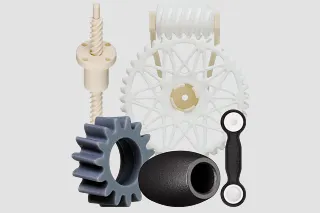
3D printing materials from igus are the only filaments, powders and synthetic resins that specifically counteract friction and wear. Our 3D printing materials are maintenance-free thanks to integrated solid lubricants. They also have a longer service life than all conventional plastics (e.g. POM, ABS or nylon) and components that are as robust as those from injection moulding. Discover our range of materials for FDM, laser sintering and DLP 3D printing now.
⯈ To the material shop
You don't have a 3D printer and would like igus to print wear-resistant components for you?
In our online 3D printing service, you can easily upload a CAD file and even calculate the service life of your component. We will manufacture your individual parts or series from our in-house materials. Your order will be ready to ship in one to three days!
⯈ To the 3D printing service
Our 3D printing processes and materials
Real-world applications from the field
A common requirement of our business partners is that 3D printed components should be free from lubrication and maintenance. However, igus also fulfils other application-specific requirements with the 3D printing service.
3D printing innovations
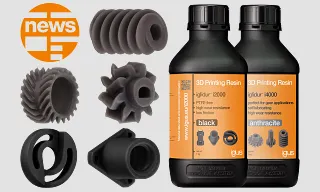
Discover our latest product innovations!
Find out all about newly developed materials and digital services for additive manufacturing with wear-resistant plastic, especially for use in moving applications.
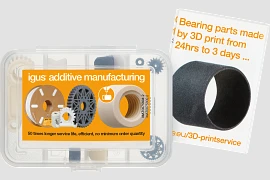
Free material sample box
See our materials for yourself and order a sample box with various 3D-printed parts.
Order a sample box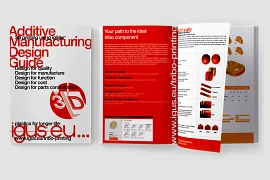
Design guide for additive manufacturing
Our design guide provides you with practical tips on designing functional parts for production using the 3D printing service.
Download the design guide3D Printing wiki: technical information about 3D printing
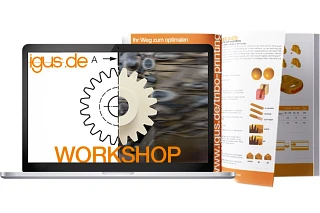
Our expertise is the result of years of experience in the world of 3D printing.
The 3D printing wiki contains the following contents:
- Frequently asked questions regarding the specification and processing of our 3D printing materials
- Design instructions and printing tips for industrial 3D printing
- Free topic-specific e-papers to download
- Recordings of past webinars and dates for future live streams
FAQ about 3D printing at igus

In our FAQs you will find common questions from our customers and the appropriate answers about the 3D printing service and the specifications and processing of 3D printing materials from igus.
Consulting
I look forward to answering your questions

Shipping and consultation
In person:
Monday to Friday from 8:30am - 5.30 pm.
Online:
24h
WhatsApp-Service:
Monday - Friday: 8:30am - 5.30 pm.


